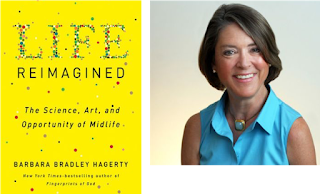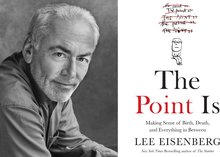Episodes
Monday Mar 28, 2016
Anne Garrels' reports from Putin Country
Monday Mar 28, 2016
Monday Mar 28, 2016
 A popular desire for authoritarian rule in the face of a changing and sometimes shaky economy. A overheated sense of nationalism, to cover up uncertainty about the future. Scapegoating and military adventurism as a salve for a lack of purpose and policy, a dislike of outsiders and a desire to crackdown on journalists to cover up anger about the changing nature of employment. Sounds like a certain candidate running for President of the US. In fact, it is a picture of the rise of Vladimir Putin and Russia, as Russia still comes to grips with the change heralded by the Soviet collapse.
A popular desire for authoritarian rule in the face of a changing and sometimes shaky economy. A overheated sense of nationalism, to cover up uncertainty about the future. Scapegoating and military adventurism as a salve for a lack of purpose and policy, a dislike of outsiders and a desire to crackdown on journalists to cover up anger about the changing nature of employment. Sounds like a certain candidate running for President of the US. In fact, it is a picture of the rise of Vladimir Putin and Russia, as Russia still comes to grips with the change heralded by the Soviet collapse.Friday Mar 25, 2016
The Industries of the Future
Friday Mar 25, 2016
Friday Mar 25, 2016
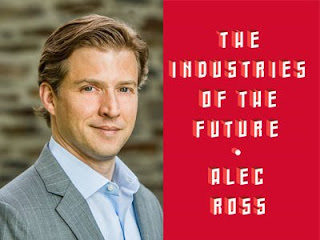 Just for fun, pull out or get a copy of the originally published version of the best seller What Color Is Your Parachute. Originally published in 1970, virtually no job that it listed that even touches technology, is even close to the same today. Remember that came out 46 years ago, just as the boomers were going into the workforce.
Just for fun, pull out or get a copy of the originally published version of the best seller What Color Is Your Parachute. Originally published in 1970, virtually no job that it listed that even touches technology, is even close to the same today. Remember that came out 46 years ago, just as the boomers were going into the workforce.Wednesday Mar 23, 2016
Can We Thrive At Midlife?
Wednesday Mar 23, 2016
Wednesday Mar 23, 2016
Tuesday Mar 22, 2016
Andy Grove R.I.P. - Our conversation from 1996
Tuesday Mar 22, 2016
Tuesday Mar 22, 2016
 Andy Grove, perhaps more than anyone other than Steve Jobs transformed technology, drove the growth of Silicon Valley and shaped the views of so many of the people that run tech companies today. To say that he was the Godfather of Silicon Valley would not be an understatement.
Andy Grove, perhaps more than anyone other than Steve Jobs transformed technology, drove the growth of Silicon Valley and shaped the views of so many of the people that run tech companies today. To say that he was the Godfather of Silicon Valley would not be an understatement. Monday Mar 21, 2016
The Math Myth
Monday Mar 21, 2016
Monday Mar 21, 2016
 If we examine why so many students don’t graduate High School, we find that failure to succeed at High School math is often at the core of the problem. Yet we are told almost every day that STEM and that math are the keys to the kingdom of success in the 21st Century.
If we examine why so many students don’t graduate High School, we find that failure to succeed at High School math is often at the core of the problem. Yet we are told almost every day that STEM and that math are the keys to the kingdom of success in the 21st Century.Wednesday Mar 16, 2016
Not Even Strip Clubs Are Not Safe From Corporate Homogenization
Wednesday Mar 16, 2016
Wednesday Mar 16, 2016
 The power and reach of corporate America has become a staple of our political dialogue. Consolidation and corporatization has touched almost every area of our culture. The Disneyfication of our communities is almost complete. Food, retail, coffee, service, music, movies and now even sex and our most intimate fantasies.
The power and reach of corporate America has become a staple of our political dialogue. Consolidation and corporatization has touched almost every area of our culture. The Disneyfication of our communities is almost complete. Food, retail, coffee, service, music, movies and now even sex and our most intimate fantasies. Monday Mar 14, 2016
Making Sense of the Meaning of Life
Monday Mar 14, 2016
Monday Mar 14, 2016
Sunday Mar 13, 2016
Obama and the Black Community
Sunday Mar 13, 2016
Sunday Mar 13, 2016
Thursday Mar 10, 2016
The Story of Globalization Through Ten Extraordinary Lives
Thursday Mar 10, 2016
Thursday Mar 10, 2016
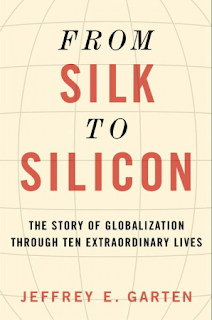 Today, globalization faces a crisis of its own success. The international movement of goods, money, communications and ideas has been going on since even before the 12th Century. However, today the context of that globalization has changed.
Today, globalization faces a crisis of its own success. The international movement of goods, money, communications and ideas has been going on since even before the 12th Century. However, today the context of that globalization has changed.Wednesday Mar 09, 2016
Nation on the Take
Wednesday Mar 09, 2016
Wednesday Mar 09, 2016
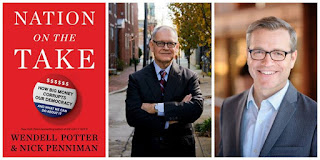 Money and politics have become synonymous. Politicians spend that majority of their time raising money, (which they claim they hate) while the cost of campaigns escalates and more money is needed and more money needs to be raised. And where does that money come from….not usually from small contributions, but from large and vested special interests.
Money and politics have become synonymous. Politicians spend that majority of their time raising money, (which they claim they hate) while the cost of campaigns escalates and more money is needed and more money needs to be raised. And where does that money come from….not usually from small contributions, but from large and vested special interests. Tuesday Mar 08, 2016
Immigration Creates Heros
Tuesday Mar 08, 2016
Tuesday Mar 08, 2016
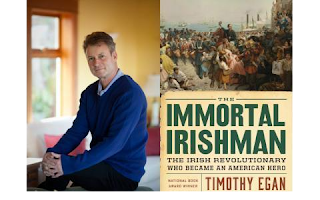 It’s funny how history repeats itself. In the mid 19th Century, partly in response to the Great Famine, waves of Irish immigrants came to America. Most landed in New York, to seek a new and better life. Then as now, questions of immigration, assimilation and criminal behavior filled the air. The appropriately named Know Nothing Party grew up in opposition to these waves of immigration and filled the political dialogue with fear and hatred.
It’s funny how history repeats itself. In the mid 19th Century, partly in response to the Great Famine, waves of Irish immigrants came to America. Most landed in New York, to seek a new and better life. Then as now, questions of immigration, assimilation and criminal behavior filled the air. The appropriately named Know Nothing Party grew up in opposition to these waves of immigration and filled the political dialogue with fear and hatred. Saturday Mar 05, 2016
Why the Contextual aspect of Health Care can Save Lives and Money
Saturday Mar 05, 2016
Saturday Mar 05, 2016
 With all the technology around today, doctors still often fail to make the right diagnosis. Usually not due to any failure of knowledge or smarts, but because diagnostics is often as much art as science.
With all the technology around today, doctors still often fail to make the right diagnosis. Usually not due to any failure of knowledge or smarts, but because diagnostics is often as much art as science.Tuesday Mar 01, 2016
Tuesday Mar 01, 2016
 Although, incorrectly attributed to Churchill, most of you have heard the quote that "if you're not a liberal when you're 25, you have no heart. If you're not a conservative by the time you're 40, you have no brain." While it’s a little silly, it does go to the core fact that personal beliefs can change as we grow, as we evolve and as context changes. And while people like Jonathan Haidt have made the case that political belief is in some ways tied to evolutionary psychology and biology, we know from the lives of prominent Americans who have changed their beliefs, that this has it’s limits.
Although, incorrectly attributed to Churchill, most of you have heard the quote that "if you're not a liberal when you're 25, you have no heart. If you're not a conservative by the time you're 40, you have no brain." While it’s a little silly, it does go to the core fact that personal beliefs can change as we grow, as we evolve and as context changes. And while people like Jonathan Haidt have made the case that political belief is in some ways tied to evolutionary psychology and biology, we know from the lives of prominent Americans who have changed their beliefs, that this has it’s limits.

